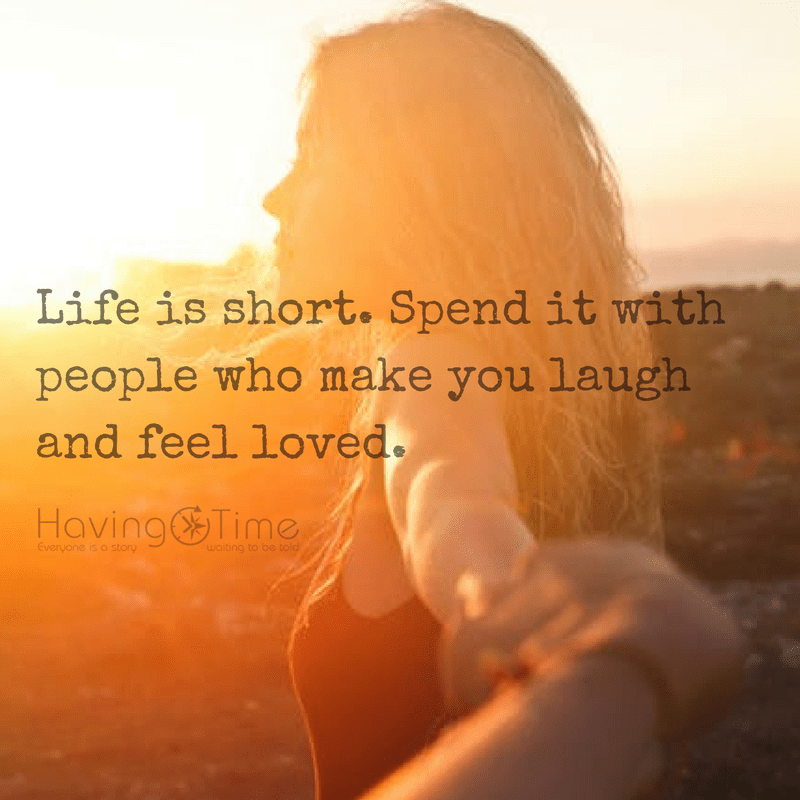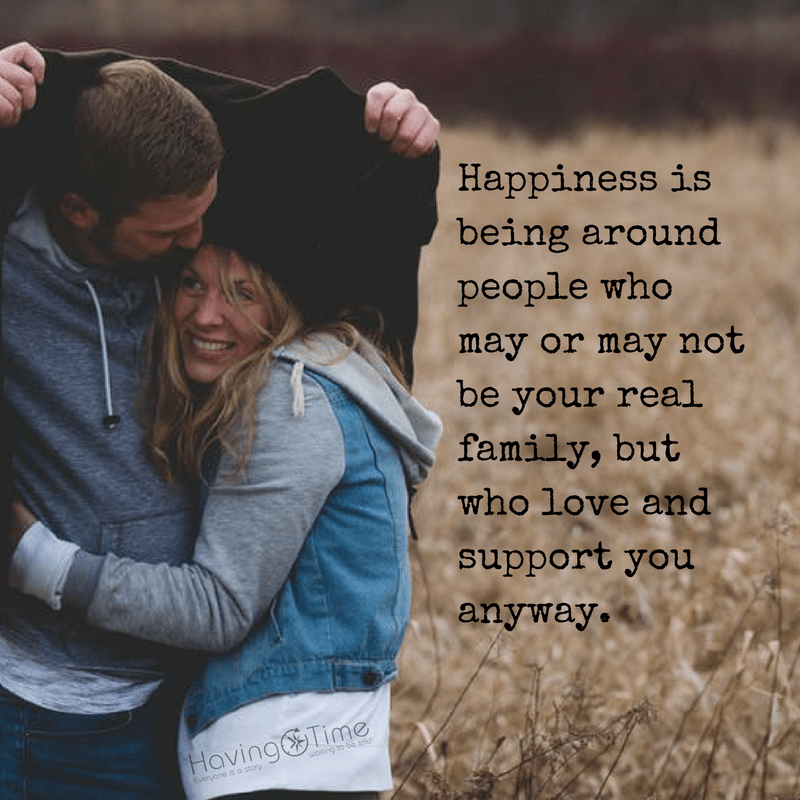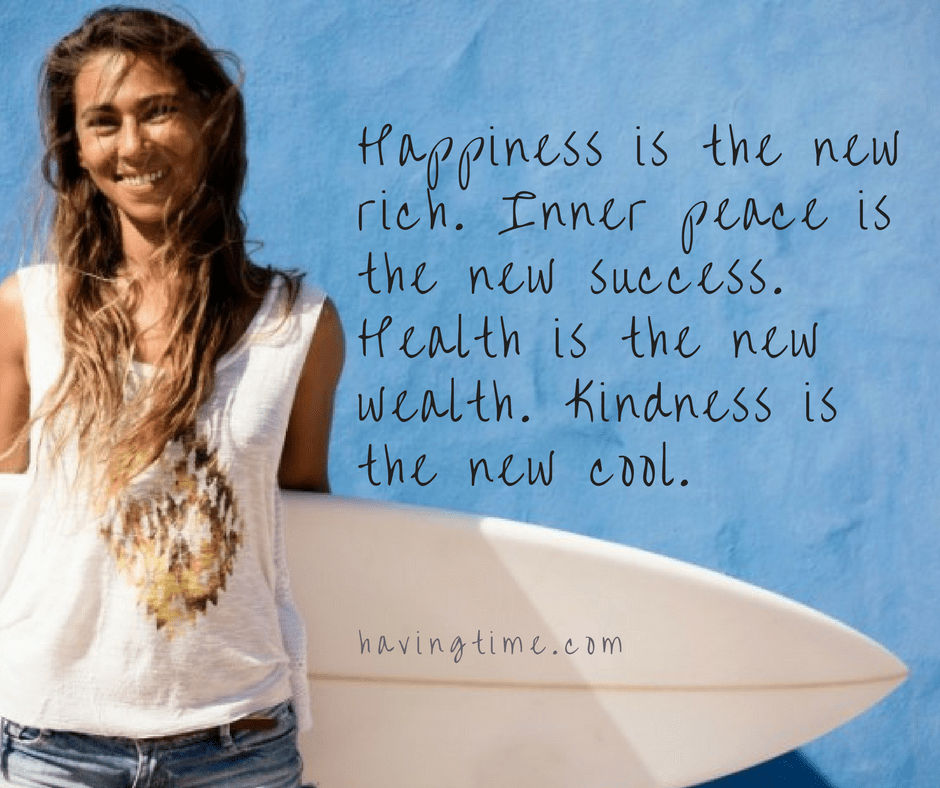
We can all agree that each one of us has a rich, inner landscape. It is the human condition that we are only able to experience our own, unique inner world. How is it that this world is created? How has our sense of “self” come to be?
In other words, who are you?
You, after all, are not your name, you are not your occupation, you are not your hobbies, you are not your body, you are not your house or car. So then, who are you?
If you don’t label yourself with some adjective, can you describe you that is in this world trying to gain things or experiences? Take a minute and go into this.
After completing a similar exercise and reading my fair share of books on the topic, I have concluded that I am a culmination of every experience that I have had before this moment in time. That is to say; I am every event, interaction, cause and effect up to this moment. So I am my body, mind, soul, career, family, friends, etc., etc., ad infinitum.
The Butterfly Effect: How to Make the Best Use of it in Life
This notion of being a culmination of experiences also implies that every second of time we progressively change. So after an interaction with a person, no matter how small, I am now a piece of that person, and a bit of that person is me.

“If I am I because I am I, and you are you because you are you, then I am I, and you are you. But if I am I because you are you and you are you because I am I, then I am not I, and you are not you!” Menachem Mendel of Kotzk – Tales of the Hasidim: The Later Masters (1948)
The final implication of this experiential agglomeration is that due to the experiences that I have had, I will tend toward choosing specific outcomes. For example, if I have grabbed something hot off of the stove, then in the future I will remember the experience and make different choices. Our options, which we are often taught to be something like “free will,” may not be so free after all.
“A man has free choice to the extent that he is rational.” – Thomas Aquinas
After contemplating who we are, it might be tough to find that “I” that you once thought you were. Because we are highly dependent on our experiences – this is how we learn – we can become vulnerable to fallacies.
The most glaring of these misconceptions is the notion of the individual. In Western Society, we have been sold the idea that “I” am an individual agent. That “I” can will things to happen, or that “I” should get as much material stuff for me as “I” can.
We can take a step back and remember the dependence of ourselves on others, experiences, and even surroundings. We can all relate to acting very differently in different situations that occur only minutes or hours apart generally in different spatial locations. If we can agree that we are in fact dependent on others and our surroundings in more ways than one, then there is a compelling implication here.
This dependence on our surroundings implies that life is more like a web than that of many individuals running around acting as independent agents. I was introduced to this concept of a web or network by Alan Watts and Jordan Peterson respectively.
In the IT world, networks are thought of as nodes and connections. Each node, say a cell phone or a computer generates some information. Every node that is connected can then share this information.
This nodal concept is a basic sketch of the internet. We are living in sort of an organic interconnected web. My surroundings, group of friends, colleagues, parents and past experiences have a substantial effect on the person that I both am and will become.
If the weblike nature of reality is one of truth, then this means not only are we not individual agents but what we do and what we do not do matter a great deal. Being connected, interdependent and influential is what I like to call your sphere of influence.

Imagine that you are at the center, and your close friends are surrounding you in a circle, evenly distributed. Each of your friends has their circle of friends, which would include you. Each of your friend’s friends would have a ring as well.
It might be likely that you know a few of your friends, friends. But it is much less likely that you know any of your friends, friends. However, your actions affect your friends, your friend’s friends, and your friends, friends, friends. That is your influence has been proven to ripple out at least three circles, probably more.
So your thoughts, words, and deeds are critical. They affect people that you do not know. Your actions also affect random people that you meet in your life because at once you influence them and three circles outward.
We have been guided toward thinking that we are individuals who need to express how it is that we are different.
Under this illusion, corporations sell us trinkets that differentiate us from others. We do get some pleasure from the purchase of material plenty, albeit an empty, fleeting feeling.
It is at this juncture that we can become caught in the endless cycle. We must work more, to earn more money, to buy more things, to feel happier.
There are two critical aspects to breaking this cycle. If we realize that we are all very much more similar than we are different, we would not need to buy a fancy car, clothes, watch, etc. or the newest iPad to distinguish ourselves.
We instead could merely enjoy each others company and the attempted sharing of each others complex and intricate inner worlds through dialogue. This is called being present. We should learn as Dale Carnegie said, that to “To be interesting, [we must] be interested.”
Fulfillment and happiness are an internal experience
The next aspect is that fulfillment and happiness are an internal experience. What goes on around you has little to do with how you will feel in the long term. There have been countless studies done where people win the lotto, are very happy for several months, and then their happiness returns to the pre-winning level.
This spike and decay of joy is the same thing with any piece of external or material wealth. You might be thinking, “Okay, how can I become happier than?”

There are numerous ways to become happier today. The first is gratitude. Instead of doing the inherently human thing and focusing on the negatives in life, focus on what it is you have instead of what you have not. This gratitude practice is tremendously powerful.
The next thing is to spend some time alone, in silence. Put your phone away, turn off the TV, turn off the music and be there with your inner experience. Many people cannot do this. They fear this state of being, they fear themselves.
You must feel this pain and suffering. Everyone has it, know that you are not alone, but you must be isolated to work on it honestly. There is only one way to overcome fear, and that is by facing it repeatedly in small chunks until it has lessened its grip.
In conclusion, to fill the apparent internal emptiness you feel, you must realize fulfillment and happiness don’t come from external gain.
What are the key takeaways from this article?
- We are a culmination of every experience that we have had before this moment in time.
- Each moment changes us in some small way.
- Due to our experiences, we tend to choose specific answers to questions.
- We are all interdependent beings. We exist in a web-like structure of reality.
- We have been sold the notion of being individuals, out for our good.
- We, in fact, are all very much more similar than we are different.
- Practice gratitude and spend time alone in silence.
- Happiness and fulfillment are internal, not external experiences.


